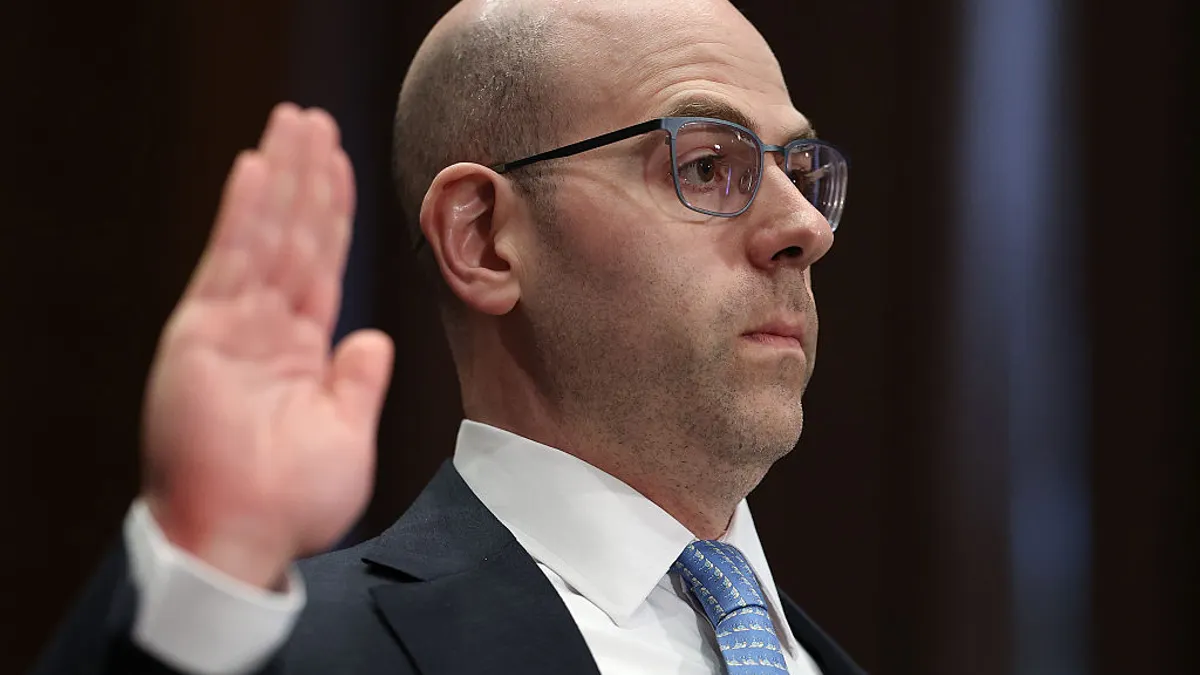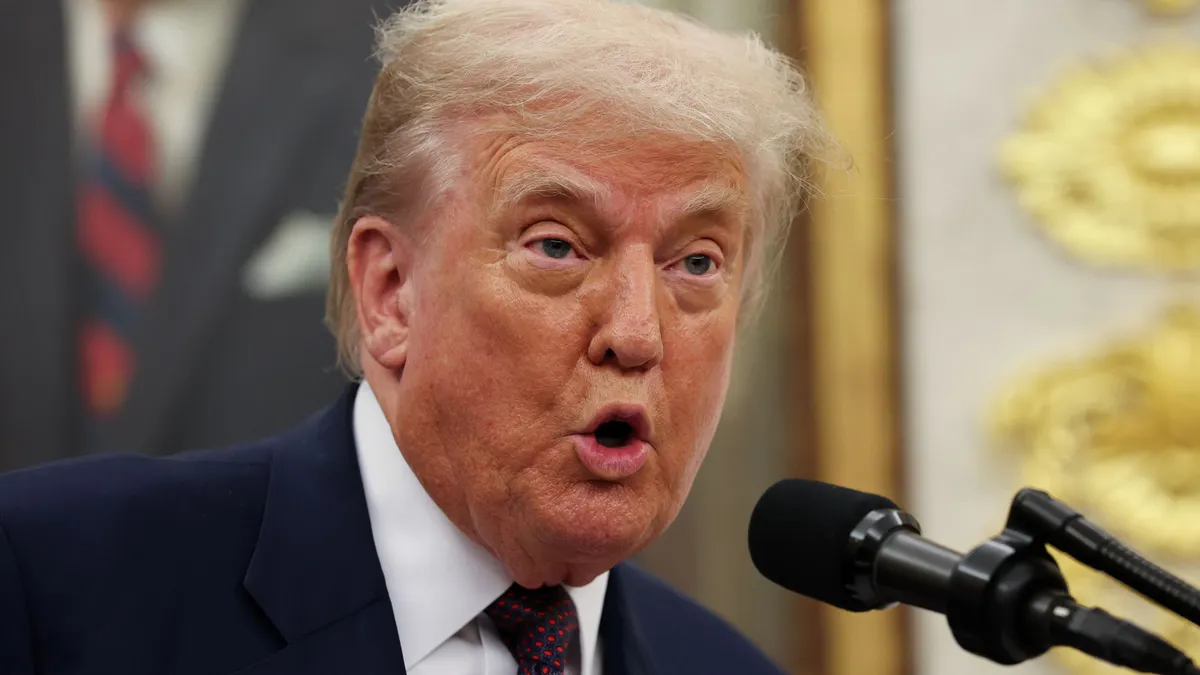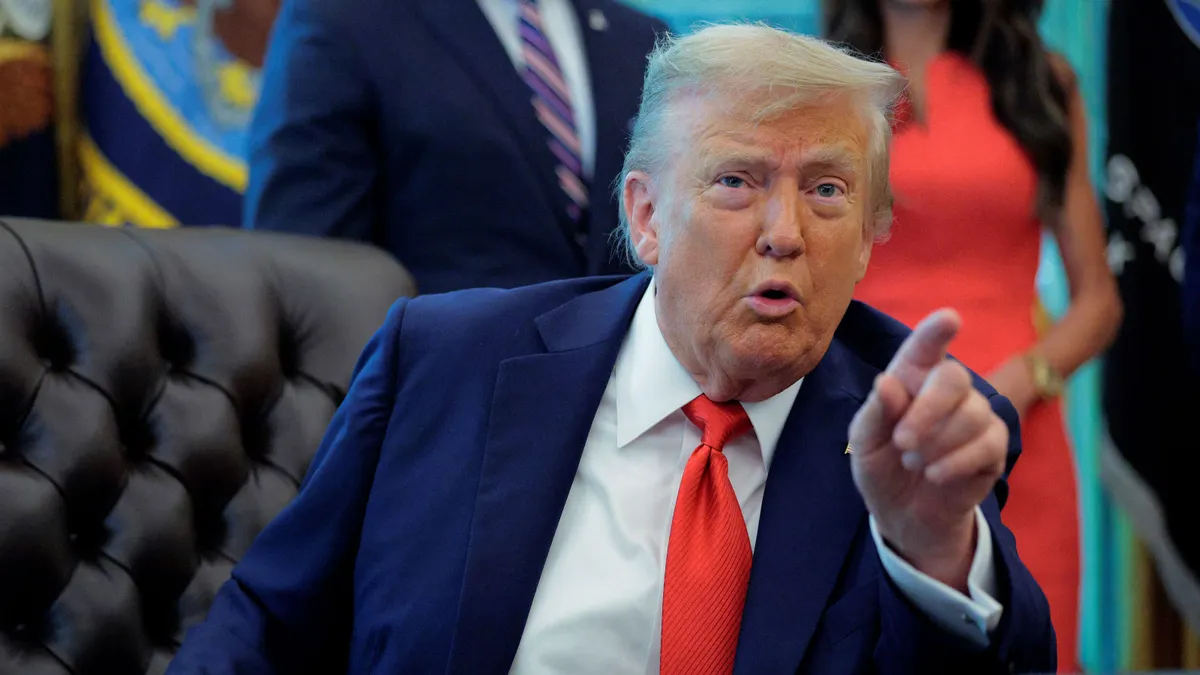A landmark bill seeking to create a new framework for stablecoins failed to get the necessary Senate votes to advance after Democrats blocked it Thursday, raising concerns about President Donald Trump and his family benefiting from crypto.
The Guiding and Establishing National Innovation for U.S. Stablecoins Act, a first-of-its-kind bill backed by the crypto industry, drew a 48-49 procedural vote in the Senate, but advancement would have required 60.
Sen. Mark Warner, D-VA, voted against the legislation and emphasized the need for the U.S. to set a standard for responsible innovation in the digital financial space.
“While we’ve made meaningful progress on the GENIUS Act, the work is not yet complete, and I simply cannot in good conscience ask my colleagues to vote for this legislation when the text isn’t yet finished,” Warner said in a statement Thursday.
Sens. Rand Paul, R-KY, and Josh Hawley, R-MO, voted against the bill, and Senate Majority Leader John Thune, R-SD, switched his vote from a yes to a no when he realized Democrats would block it.
The bill was introduced as a bipartisan effort and passed out of the Senate Banking Committee on an 18-6 vote, with five Democrats supporting it.
Sen. Ruben Gallego, D-AZ, and other crypto-friendly Democrats who initially supported the stablecoin legislation expressed reservations about the Trump family's planned stablecoin initiatives and noted the rush to review the final bill text, according to The New York Times.
“Legislation of this scope and importance cannot be rushed,” Gallego said, adding that he and other Democrats needed more time to review the bill, the NYT reported. “I want to be clear that we do have enough members across the aisle that want to see this pass in a good manner.”
The development is a win for Sen. Elizabeth Warren, D-MA, who has called out Trump’s involvement in a billion-dollar business deal that also has support from state-backed Emirati investment firm MGX, crypto exchange Binance and Trump-affiliated World Liberty Financial.
Last week, Eric Trump, Trump’s son, announced that MGX will use stablecoins issued by WLF to pay for its recent $2 billion investment into Binance, according to Fortune.
Sales on the meme coin promoted by Trump, $TRUMP, surged after organizers promised a private dinner with the president. However, most top holders of Donald Trump’s memecoin have used foreign exchanges that say they ban U.S. users, highlighting that many buyers are based outside the country, Bloomberg reported Wednesday.
On Monday, Warren outlined the fixes that Democrats demand to support the GENIUS Act and raised concerns about Trump’s crypto ties. She called for basic rules so that government officials cannot profit from stablecoin ventures and the bill must ensure that big tech companies and other commercial firms cannot issue stablecoins to preserve the separation between banking and commerce.
Warren emphasized the need to include basic consumer protections, in line with other financial transactions, and for sufficient safeguards to ensure that a stablecoin meltdown will not trigger an economic crisis.
“If the GENIUS Act goes forward without changes, Donald Trump will continue to line his pockets with his crypto scams – while his policies continue to tank the economy for the rest of us,” Warren said in a prepared statement on the Senate floor.
“If the majority wants to establish a durable legal framework for digital assets, rather than just try to score political points, they will take these concerns seriously and agree to improve the bill,” she added.
Democrats' dissatisfaction with the crypto legislation was evident when Rep. Maxine Waters, D-CA, walked out of a joint hearing on the digital asset bill on Tuesday. Waters, ranking member of the House Financial Services Committee, objected to the joint hearing of the committee and the House Agriculture Committee and stalled the discussion.
Republicans noted the Senate missed an opportunity to advance the regulatory framework on crypto.
Treasury Secretary Scott Bessent called the bill “a once-in-a-generation opportunity to expand dollar dominance and U.S. influence in financial innovation” without which stablecoins will be overseen by a “patchwork of state regulations” lacking a streamlined federal framework.
Senate Banking Committee Chairman Tim Scott, R-SC, on the Senate floor Thursday, noted that he is not finished fighting.
“I am frustrated, but we are not defeated. We are simply delayed,” he said. “We will continue to work on the digital asset revolution that the American people voted for; they deserve. To those who chose politics over progress today, the American people are watching.”





















